If you’re been paying attention to ISIS coverage, you’ve probably noticed the meme about women who are fighting for the Peshmerga. The topic has gone viral, and has been repeatedly covered by outlets ranging from the The Telegraph and Foreign Policy to the Times of Oman and New York Post. The gender politics are troubling. The most offensive coverage has been from Human Rights Observers, which went so far as to title its piece, “the beautiful Kurdish women who scare ISIS fighters.” Not only does HRO engage in the widespread (and completely uncritical) veneration of Kurdish guerrilla fighters, but it also proudly states what is implicit in the other articles. Hot women are killing jihadis, and we should be proud of that.
It isn’t just the Peshmerga. Consider the CNN report on Mariam al-Mansouri, who is the United Arab Emirates’ first female fighter pilot. She has become a mini-celebrity after having led an aerial strike mission against ISIS two weeks ago. The angle to the coverage is obvious: “How do ISIS fighters feel about getting bombed by a woman?” As other regional states join the offensive, we will likely hear other permutations of this basic format. How do ISIS fighters feel about getting shelled by women? Assassinated by women? And so on. After all, the women fighting Islamic State (or “Daesh“) have clearly become a spectacle for us.
Why the fixation? Part of it actually is appreciation for genuine bravery. It isn’t exactly easy when you’re fighting such thoroughly unsettling and experienced fighters, especially when they are infamous for misogyny. Another part is that these women are being used to sell a combat narrative. This isn’t actually new: as just one example, an image of a Pakistani fighter pilot went viral earlier this year during Operation Zarb-e-Azb. Her thumbs up in front of a fighter jet made Pakistanis feel like there was a pro-woman flare to the offensive. Older readers will remember the excitement about women unveiling when the Taliban was overthrown, and the gleeful photo-ops of newly trained female soldiers and police officers in Afghanistan and Iraq. Since the War on Terror began, female fighters have been turned into living justifications for its excesses, and help to define anti-jihadist efforts against the jihadis themselves.
This is tricky territory. It is important not to ignore that jihadists commit horrific acts against women. The gender politics are also so complicated that, as a journalist friend recently told me, “you can write an entire dissertation just about how Western media outlets cover women in the Pesh.” That research would probably cite Jasbir Puar, Gayatri Spivak, and Seneca Peña-Colłazo, among others. We also shouldn’t discount the fact that these women often make a difficult and independent decision to participate in combat operations. This is done for the same reasons as anyone: societal loyalty, ideology, resource considerations, and so on. There are also the difficult philosophical questions that are navigated by anyone defending themselves, as Peshmerga fighters who are threatened by Islamic State conquest clearly are. They include discussions of justified resistance that arguably places these women in a global military tradition that includes those who fought in the Spanish Civil War.

When it comes to the story that they are being used to sell, though, those considerations are mostly irrelevant. After all, they presume a level of humanity and agency that isn’t actually assigned to these women in much of the coverage. The focus on physical attraction is proof enough, but even besides that, many journalists haven’t actually cared enough to ask critical questions about why these women are fighting, and whether or not their mission is morally justifiable. The coverage is clearly about pandering to a need that has nothing to do with the women themselves. Civilians from states that are once again at war need to rationalize what is going on, and female fighters are being presented to them as implicit proof that military operations are being framed by higher moral demands: this one being feminist.
Every time that al-Mansouri bombs an ISIS batallion, and a female Peshmerga fighter shoots a jihadist, we are subconsciously meant to believe that we helped make that happen. The objective is for us to see the entire war effort as one that is assisting female empowerment. Through bombing eastern Syria, and northern Iraq, we are helping women to kill evil jihadi misogynists. It shouldn’t need repeating that this process also assuages our concerns about misogyny in our own societies. The more cynical of us would even argue that a hawkish leadership is actively promoting such imagery, knowing that it plays well, and that there isn’t a strong anti-war rebuttal against it.
It is shocking how much this recalls the occupation of Iraq a decade ago. Back then, American media outlets even went so far as to manufacture a war myth about Jessica Lynch, for no other reason than it helped justify the war to have a fantastical tale about an American woman being saved from the Iraqi military. There are obvious differences here: namely that these “beautiful Kurdish women” are being supported, not exactly saved by full intervention. However, there is also continuity. Women soldiers are being estranged from their combat experiences, which are being taken by foreign news outlets, distorted, and then presented to the audience based on the falsehoods that it needs to hear. There is real heroism and sacrifice that is worthy of celebration among many of these women, but that isn’t the reason that we’re hearing about them. They are being covered because of our own spiritual needs as citizens of states that are at war. We need to be the good guys.
It is depressing that these illusions are being rallied once again with new variations, but that is happening because their momentum was never broken. The Obama Administration had a perfect opportunity to work through Bush-era foreign policy, and direct the world in a new direction, but it was squandered. Now, we are left with wartime propaganda that recalls the months immediately after September 11th, and dehumanizes female anti-ISIS fighters just as much as it claims to do the opposite. It may be the case that rhetoric like this is built into the War on Terror, and that we will spend much of our lives hearing it in new contexts with minor variations. They are “beautiful Kurdish women who scare ISIS fighters” today, and they will be “beautiful Nigerian women who scare Boko Haram” tomorrow. If that is to be prevented, then the momentum commanded by hawkish foreign policy, and the gendered aspects of war, will have to be broken. It remains to be seen how that will happen.
Photographs courtesy of jan Sefti. Published under a Creative Commons License.
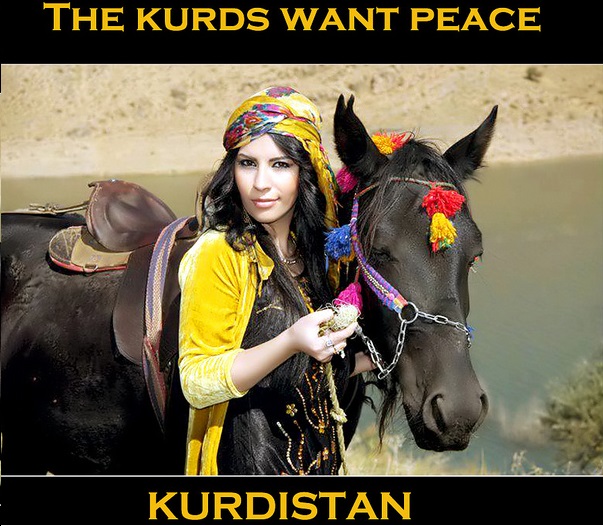
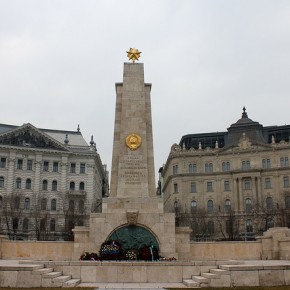
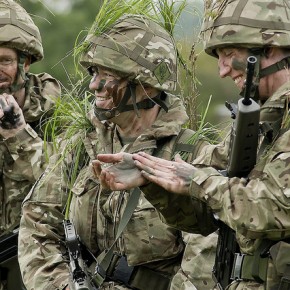

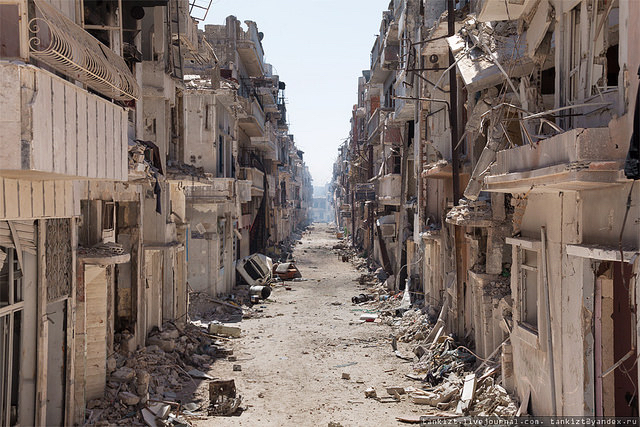
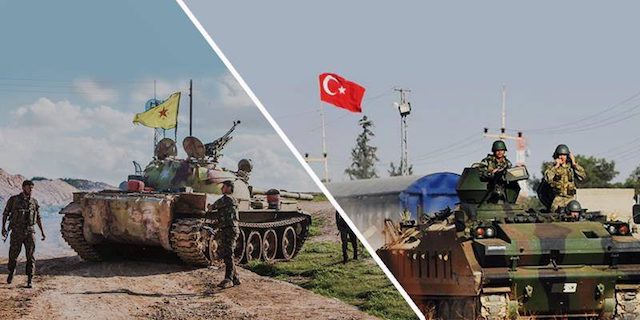
4 comments